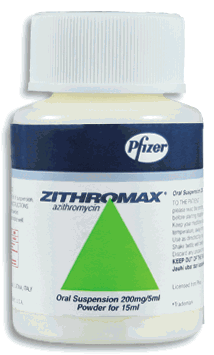 Almost four years has passed since the FDA sent out a warning letter to Pfizer regarding popular antibiotic Zithromax and its alleged association with Toxic Epidermal Necrolysis (TEN).
Almost four years has passed since the FDA sent out a warning letter to Pfizer regarding popular antibiotic Zithromax and its alleged association with Toxic Epidermal Necrolysis (TEN).
In June 2012, the FDA required Pfizer to update their Zithromax brochure for overstating the drug’s benefits and not adequately explaining their product’s adverse drug reaction.
By May 2014, Pfizer had produced sufficient information regarding the alleged correlation to the medical community, but consumers still remained widely oblivious to the correlation, according to critics.
Toxic Epidermal Necrolysis is an extreme allergic reaction specifically caused by an adverse drug reaction, and is a more severe form of Stevens Johnson Syndrome (SJS Syndrome). Both conditions are characterized by the discoloration of patients’ skin, and can be potentially fatal if not diagnosed in a timely manner.
While SJS syndrome is more often identified than TEN, Toxic Epidermal Necrolysis can evolve from the former condition. According to the official Zithromax page on Pfizer.com, adverse drug reactions can include severe skin rashes or blisters from allergic reactions.
While SJS syndrome is not officially mentioned on the page, the company does advise patients to immediately consult their physicians as soon as they exhibit any allergy symptoms.
On the other hand, the link for medical professionals on the Zithromax is significantly more detailed and is updated more frequently:
“Serious allergic reactions, including angioedema, anaphylaxis, and dermatologic reactions including Stevens-Johnson syndrome, toxic epidermal necrolysis, and Drug Reaction with Eosinophilia and Systemic Symptoms (DRESS) have been reported in patients on azithromycin therapy,” Pfizer’s Zithromax information to medical professionals stated.
The page went on further to say that fatalities from Zithromax SJS syndrome and Toxic Epidermal Necrolysis have been reported. Furthermore recurrence of these conditions were also observed, despite ceasing Zithromax.
A growing number of consumers have been researching the physician Zithromax pages, as the company has not update the consumer page for nearly five years. However, patients should never discontinue medications without consulting their physicians.
Overview of Zithromax SJS and TEN
Zithromax is one the most popular antibiotics in the United States, which is prescribed to treat a variety of bacterial infections. As indicated above, it is manufactured by Pfizer and has earned the company billions since its release in 1992.
The drug’s popularity stems from its treatment mechanism, which differs greatly from other antibiotics that often kill the bacterial cells outright. However, it was not long after the drug was released that it had been linked to several cases of SJS syndrome and Toxic Epidermal Necrolysis.
Due to the infrequency of how often these conditions are actually seen, drug labels often do not indicate them, leaving numerous patients unaware of the possibilities. According to a recent survey conducted by ehealthme, 10,972 Zithromax patients reported adverse drug reactions with 173 (1.58%) of these cases being SJS syndrome.
Patients who suffer these conditions often contend with permanent skin damage and some form of eyesight damage, and have to remain vigilant for any signs of recurrence. Due to the fact that neither SJS or TEN are often mentioned on drug warning labels, victims may be eligible for a potential legal claim against the manufacturer.
Do YOU have a legal claim? Fill out the form on this page now for a free, immediate, and confidential case evaluation. The Zithromax attorneys who work with Top Class Actions will contact you if you qualify to let you know if an individual lawsuit or Zithromax class action lawsuit is best for you. [In general, Zithromax lawsuits are filed individually by each plaintiff and are not class actions.] Hurry — statutes of limitations may apply.
Get Help – It’s Free
Join a Free Zithromax Class Action Lawsuit Investigation
If you or a loved one were diagnosed with liver failure, kidney failure, Stevens Johnson Syndrome or Toxic Epidermal Necrolysis after taking Zithromax, Z-Pak, Zmax or azithromycin, you may have a legal claim. See if you qualify by filling out the short form below.
A Zithromax attorney will contact you if you qualify to discuss the details of your potential case at no charge to you.
Oops! We could not locate your form.
ATTORNEY ADVERTISING
Top Class Actions is a Proud Member of the American Bar Association
LEGAL INFORMATION IS NOT LEGAL ADVICE
Top Class Actions Legal Statement
©2008 – 2025 Top Class Actions® LLC
Various Trademarks held by their respective owners
This website is not intended for viewing or usage by European Union citizens.












